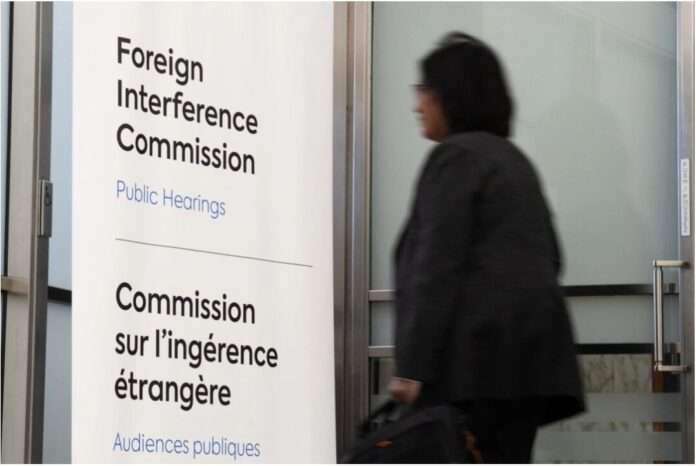“While all states pursue legitimate diplomatic activities to influence other countries, the People’s Republic of China (PRC) is engaged in a number of activities in Canada that go beyond normal diplomatic activity, and as such, constitute foreign interference,” stated the “country summary” on the PRC prepared by the Canadian Security Intelligence Service (CSIC). “The resources that the PRC expends on these activities exceed those of other states.”
The summary was presented before the commission, whose core mandate is to investigate alleged foreign meddling in Canada’s 2019 and 2021 federal elections. The issue grabbed headlines following media reports, particularly throughout 2023, alleging ongoing Chinese interference in Canada’s elections along with other covert activities targeting Canada and its citizens. These include Chinese diaspora and other minority groups who had fled persecution by the Beijing regime.
Key Targets
China’s ruling Chinese Communist Party (CCP) targets five primary groups: Falun Gong practitioners, Uyghurs, Tibetans, supporters of Taiwanese independence, and advocates for democracy in China. The CCP considers these groups particularly threatening to its rule, calling them the “Five Poisons.”
“Transnational repression, which includes harassment and other threats, is most often directed at individuals affiliated with–or believed to be affiliated with–those Five Poison groups,” CSIS said in its country summary.
The report raised concerns about the regime’s attempts to blur the distinction between Chinese citizens living abroad and citizens of foreign states who are of Chinese heritage. By doing so, the CCP aims to align public narratives and policies in Canada with its own, especially regarding its human rights record, territorial claims, and any perceived threats to its stability.
“The PRC seeks to position itself as the ‘voice’ of all Chinese people around the world, regardless of citizenship, or the disparate views of the members of the broader diaspora communities themselves,” CSIS said.
As an example of Beijing’s attempt to exert control over people of Chinese origin worldwide, CSIS cited the regime’s implementation of a series of national security laws. These laws mandate action by both its citizens and entities, even those located abroad.
Tools and Proxies
CSIS recognized that the CCP uses a wide range of tools and entities to carry out foreign interference activities in Canada. These include Chinese state entities, such as the Foreign Affairs Ministry and the United Front Work Department, as well as Canadian and Canada-based proxy agents, including some PRC officials in Canada. The agency highlighted the United Front as a key party-state body responsible for intelligence collection and foreign interference.
The United Front has a budget in the billions for its global operations and aims to control and influence Chinese diaspora living in other countries, CSIS said. It also seeks to shape international opinions and influence politicians to support the CCP’s policies, the CSIS summary highlighted.
Other Chinese state bodies involved in foreign interference include the Overseas Chinese Affairs Office, which merged with the United Front in 2018; the Ministry of State Security; and the Ministry of Public Security. The latter two entities operate covertly internationally and remotely from the PRC, said CSIS.
Additionally, CSIS said that belonging to an organization with links to China, even those affiliated with the United Front system, doesn’t amount in and of itself to foreign interference or pose a threat to Canada’s national security. However, it noted that Beijing adopts a “whole of society approach that blurs the distinction between legitimate activity (influence) and clandestine, deceptive activity (interference).”
“The PRC uses the United Front system to engage in clandestine, deceptive, and threatening activity around the world, often by leveraging influence and exerting control over some diaspora communities,” the report said.
The regime is known for its “persistent and patient” approach to influence operations, employing a long-term strategy. It invests in building relationships through both overt and legitimate means and covert and deceptive means to foster cooperation over time.
To cultivate these relationships, the regime uses various overt methods, such as offering incentives “directly to a person or indirectly to those close to them.” These may include invitations to important cultural or national events, often in China: expense-paid trips to China, preferential business opportunities, expedited visa access, and political support, including financial backing, according to CSIS.
In contrast, disincentives may involve denying travel visas, imposing exit bans on family residing in China, and subjecting targets and their family members in China to harassment and intimidation. These reported tactics are consistent with revelations that Conservative MP Michael Chong’s family members in Hong Kong were targeted due to his advocacy of a Canadian position to recognize Beijing’s abuse of the Uyghurs as genocide.







